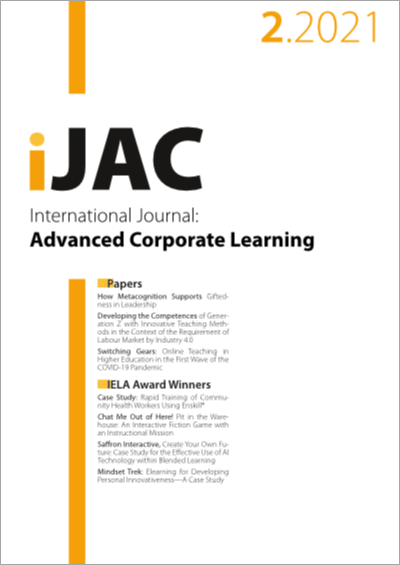How Metacognition Supports Giftedness in Leadership
A Review of Contemporary Literature
DOI:
https://doi.org/10.3991/ijac.v14i2.23237Keywords:
metacognition, giftedness, leadership, 21st century skills, metacognitive skillsAbstract
Τhe purpose of this article is to investigate how metacognition supports giftedness in leadership. The concepts of metacognition, giftedness and leadership seem to be interrelated. The article attempts to explore new trends in understanding and development of giftedness. Research has shown that the concept of metacognition is inextricably linked to the concept of giftedness. Metacognition has an important role in the development of individuals, because it helps them to improve their cognitive and metacognitive skills. Metacognitive skills such as monitoring, self-regulation, awareness are higher skills that gifted individuals process to a high degree and through training can improve them even further. Moreover, the metacognitive skills of monitoring and adaptation can affect leadership skills. The metacognitive skills that are associated with leadership are self-awareness, regulation and monitoring. Therefore, if leadership is based on consciousness and giftedness then we will have higher leadership skills.
Downloads
Published
How to Cite
Issue
Section
License
Copyright (c) 2021 Eirini – Zoi Kontostavlou, Athanasios Drigas

This work is licensed under a Creative Commons Attribution 4.0 International License.



